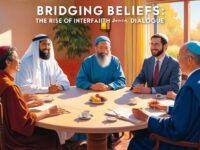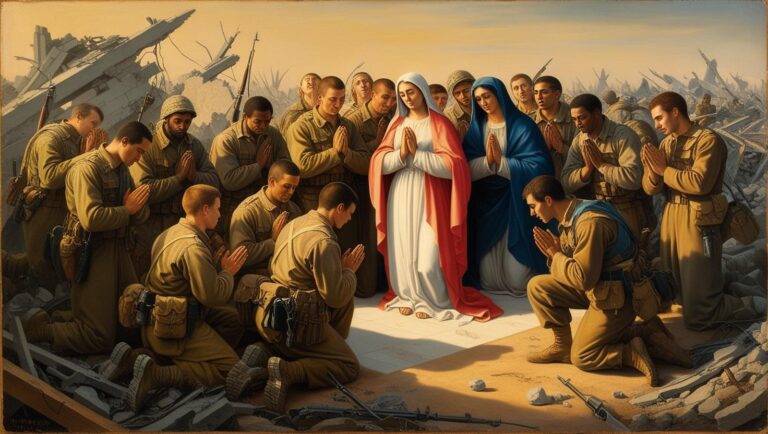War is one of the most chaotic and disruptive experiences imaginable, shaking the very foundations of societies and individuals alike. Amidst the clamor of conflict and the devastation it brings, many find themselves turning to faith as a guiding light. Whether grounded in religious traditions or a more personal spirituality, faith offers comfort and direction when the world seems to be falling apart. This article explores how faith helps individuals navigate the chaos of war, providing solace and guidance during turbulent times.
Finding Solace in Faith During Turbulent Times
In the midst of war, when the world feels like it’s unraveling, faith often emerges as a pillar of strength. People from all walks of life turn to their spiritual beliefs to find a sense of peace and understanding. It’s common to see individuals seeking refuge in prayer, meditation, or sacred texts, drawing comfort from the notion of a higher power or purpose. This solace is crucial when daily life is upended and uncertainty reigns supreme.
Faith communities also play a vital role in offering support and solidarity. Churches, mosques, temples, and other places of worship often become sanctuaries for those seeking emotional and physical refuge. These communities provide not just spiritual guidance but also practical assistance, fostering a sense of unity and shared resilience. In the face of adversity, the collective strength of a faith community can be incredibly uplifting.
Moreover, faith offers a way to process the grief and loss that war inevitably brings. Many religious traditions include rituals and practices designed to help individuals come to terms with death and destruction. These practices can provide a framework for mourning and healing, allowing people to navigate their emotions in a structured, supportive environment. In this way, faith can be a powerful tool for coping with the horrors of war.
Navigating War’s Chaos with Spiritual Guidance
Amidst the unpredictability of war, spiritual guidance acts as a compass, helping individuals make sense of the chaos around them. Many find that the teachings of their faith offer insights and principles that guide their actions and decisions. Whether it’s the call to love one’s neighbor, the emphasis on compassion and forgiveness, or the encouragement to seek justice and peace, these spiritual tenets can influence behavior in meaningful ways.
Faith can also inspire acts of courage and selflessness in the face of danger. Stories abound of individuals who, motivated by their spiritual beliefs, risk their lives to help others during wartime. This sense of duty and moral responsibility often stems from deeply-held convictions about the sanctity of life and the importance of kindness and empathy. These acts of heroism remind us of the good that persists even in the darkest times.
Furthermore, faith provides hope—a crucial element when the future seems bleak. Belief in a better tomorrow, whether in this life or beyond, encourages perseverance and resilience. For many, faith offers assurance that their struggles are not in vain and that there is light at the end of the tunnel. This hope fuels the human spirit, enabling people to endure hardships and work towards rebuilding their lives and communities.
In the midst of war’s chaos, faith emerges as a steadfast guide, offering solace and direction to those who seek it. From providing comfort in times of grief to inspiring acts of bravery and hope, faith plays an essential role in helping individuals navigate the tumultuous realities of conflict. While the challenges of war are immense, the enduring power of faith reminds us of our capacity for resilience and compassion in even the most trying of circumstances. As we continue to witness the impact of war across the globe, the stories of those who draw strength from their faith serve as a poignant reminder of the light that can shine through the darkness.

















